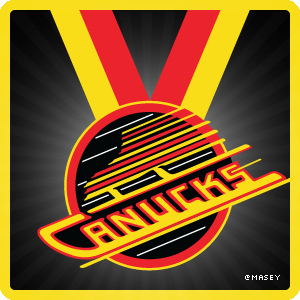Print Edition: June 10, 2011
By Joel Smart (The Cascade) – Email
 It’s no secret that we hockey fans have an opinion or two about the way the game is refereed. A call one way or the other can be the difference between winning or losing in a tight game, and so it seems particularly unfair when the team you’re cheering for gets called, while you feel similar infractions have gone unchallenged for the opposing side. Unfortunately, there is no easy solution. Nevertheless, something must be done.
It’s no secret that we hockey fans have an opinion or two about the way the game is refereed. A call one way or the other can be the difference between winning or losing in a tight game, and so it seems particularly unfair when the team you’re cheering for gets called, while you feel similar infractions have gone unchallenged for the opposing side. Unfortunately, there is no easy solution. Nevertheless, something must be done.
There are two key interrelated issues that must be addressed. The first thing is consistency. We hear the announcers on television talking about it all the time, so it is no surprise, but it is undeniable that the way the refs are calling games is different from night to night. It is a fast game, but it isn’t too much to ask for a more reliable set of rules. It has also been suggested by many that officials are more likely to call penalties against players they don’t like. If true, that’s not a good thing for the sport of hockey. A hooking penalty should be called the same way, regardless of if you happen to get along with the individual with the whistle or not.
The second key issue was best brought to light by Tony Gallagher, in The Province, when it was announced the Canucks would face the Boston Bruins in the Stanley Cup Finals. Colin Campbell, the Director of Hockey Operations, has a son who plays for the Bruins, and it raises all kinds of questions about the possible biases that could be shaping inconsistently-reffed games. “The problem is the on-ice officials,” Gallagher said. “They are appointed by a department for which Campbell has responsibility and the entire progress of their careers is totally controlled by these people. They decide when the officials work, how much they work, and as such how much they get paid.” It’s tough to know whether those factors could play a role in the mind of a referee, consciously or not. After all, who doesn’t want to keep their boss happy?
Colin Campbell stepped down as chief disciplinarian the day after Gallagher’s article, but of course that won’t change the power his department holds over the referees. The point is not that the Canucks are so hard done by. However, it would be nice for a bit more transparency. The way the NHL works, disciplinary and officiating decisions are hidden behind closed doors. Those players, coaches, and general managers that question them are silenced through large fines (as Canucks GM Mike Gillis found out the hard way). Something is clearly wrong with what’s going on, and it isn’t doing anyone any favours to keep it locked away and out of public discourse. For such an integral part of the game, everyone involved has a right to know a bit more about what’s going on.
Admittedly, there may not be an ideal solution. Too many penalties in a game completely decimates the exciting flow that fans love to watch, but too few and we’re back to the dead puck era, where the game is slowed to a crawl and the skill is reduced to the lowest common denominator. Not to mention, there is just no way for two referees to see everything. It’s a hard job, and a thankless one at that. To find the best possible balance, there will have to be compromises made by all parties. Refereeing must be an issue addressed by the NHL this offseason, because wish as they might, these problems will not go away on their own.

